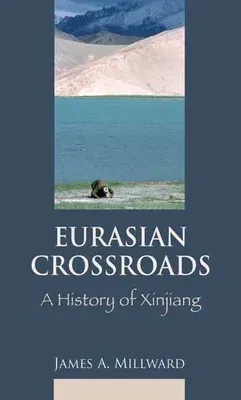James Millward
(Author)Eurasian Crossroads: A History of XinjiangHardcover, 10 April 2007

Qty
1
Turbo
Ships in 2 - 3 days
In Stock
Free Delivery
Cash on Delivery
15 Days
Free Returns
Secure Checkout

Print Length
352 pages
Language
English
Publisher
Columbia University Press
Date Published
10 Apr 2007
ISBN-10
0231139241
ISBN-13
9780231139243
Description
Product Details
Author:
Book Format:
Hardcover
Country of Origin:
US
Date Published:
10 April 2007
Dimensions:
23.83 x
16.61 x
3.23 cm
ISBN-10:
0231139241
ISBN-13:
9780231139243
Language:
English
Location:
New York
Pages:
352
Publisher:
Weight:
843.68 gm